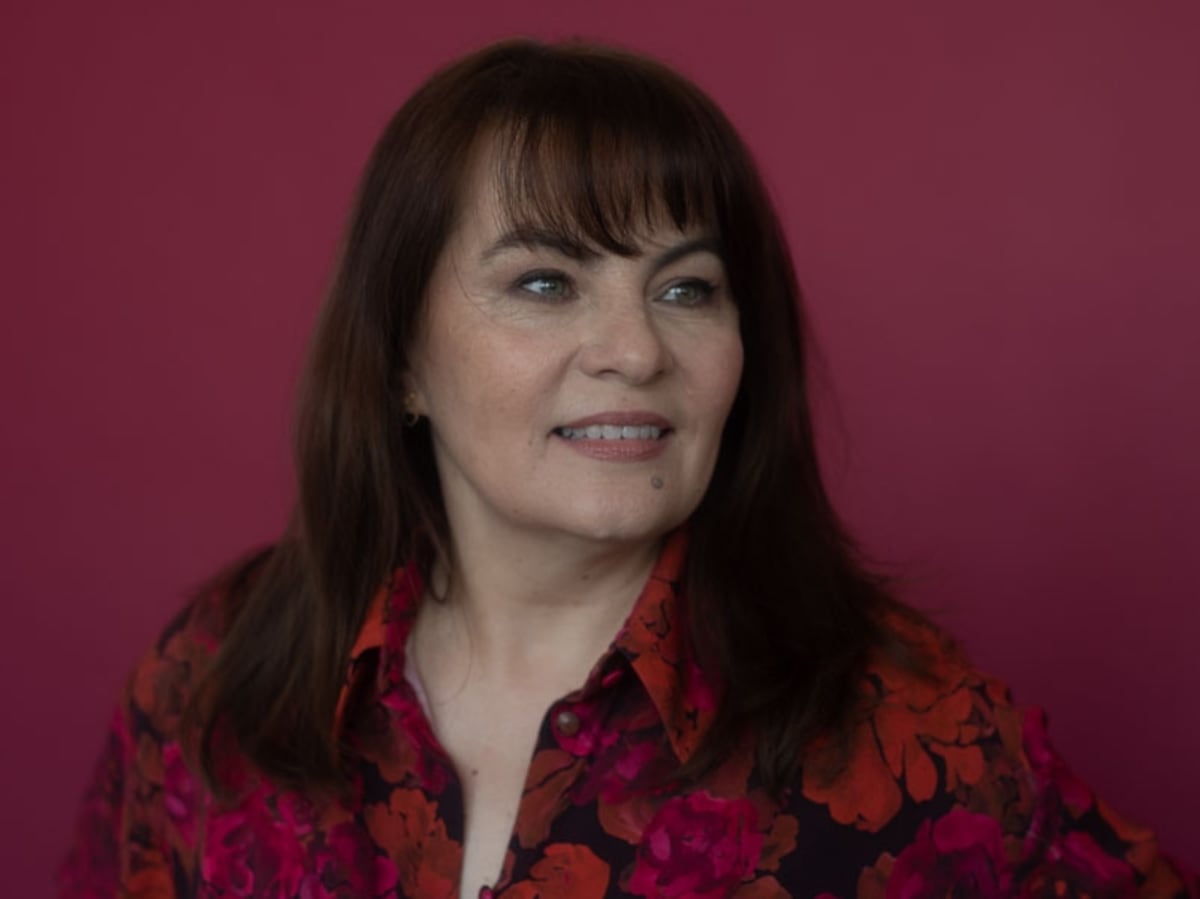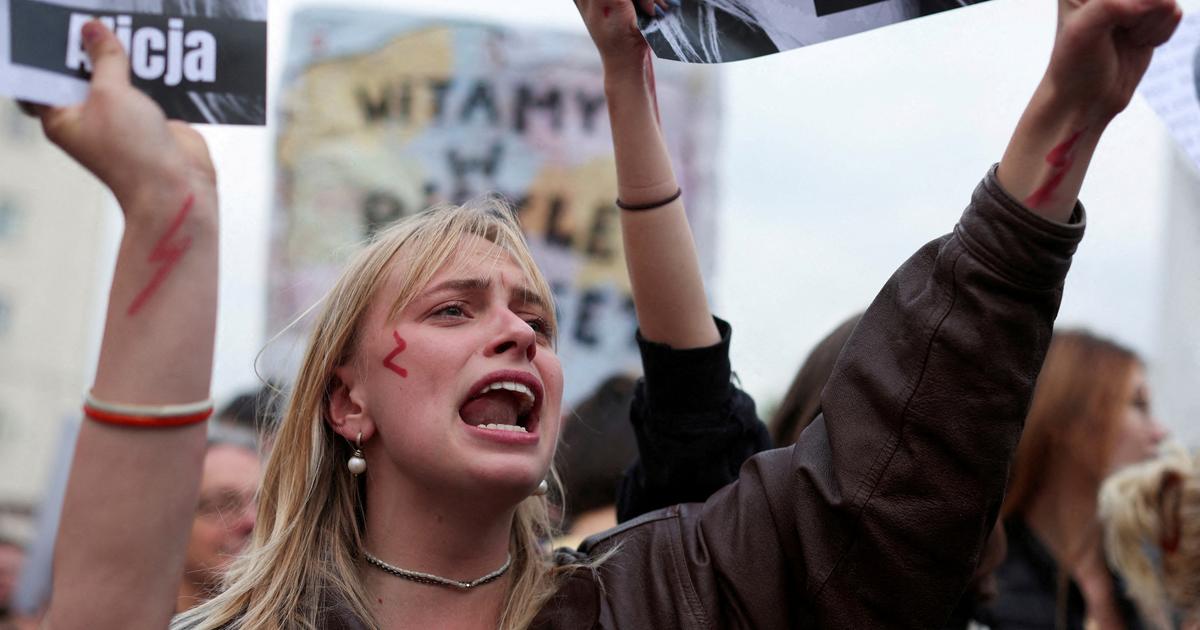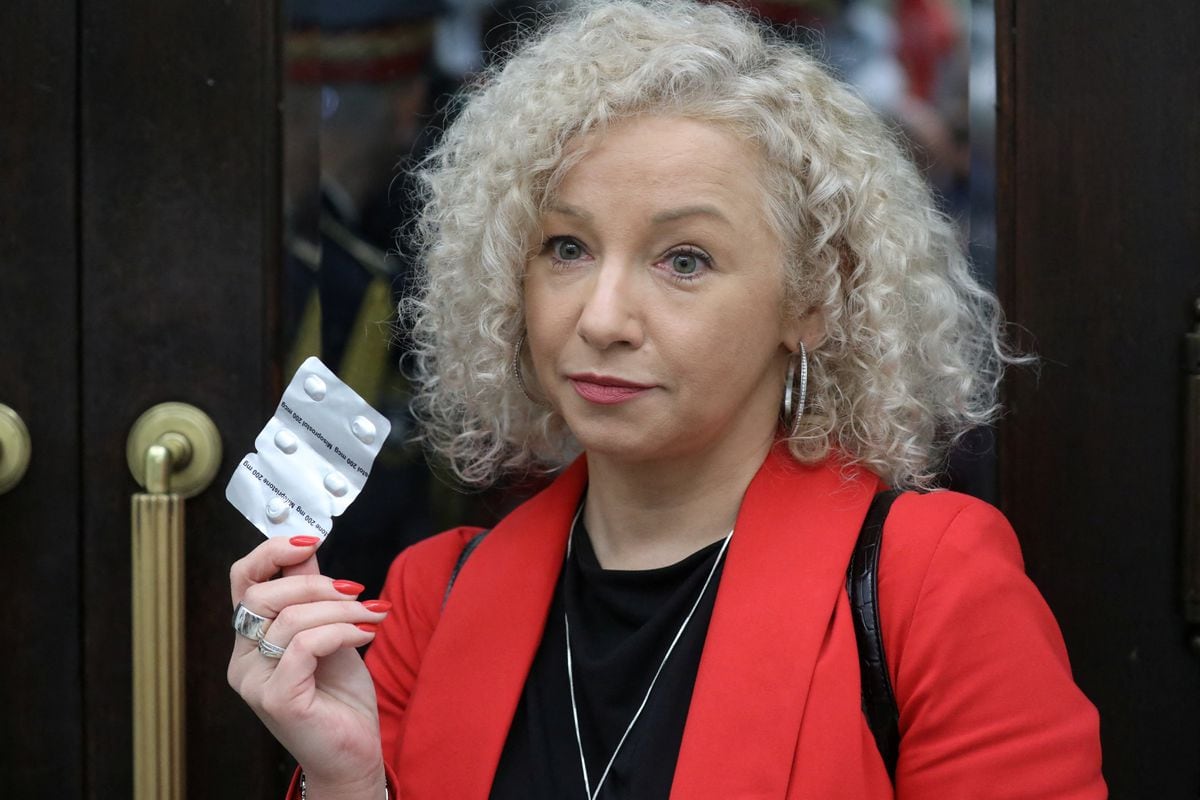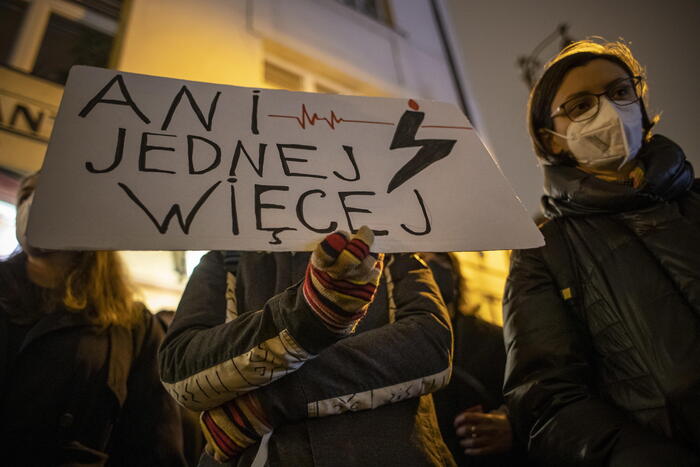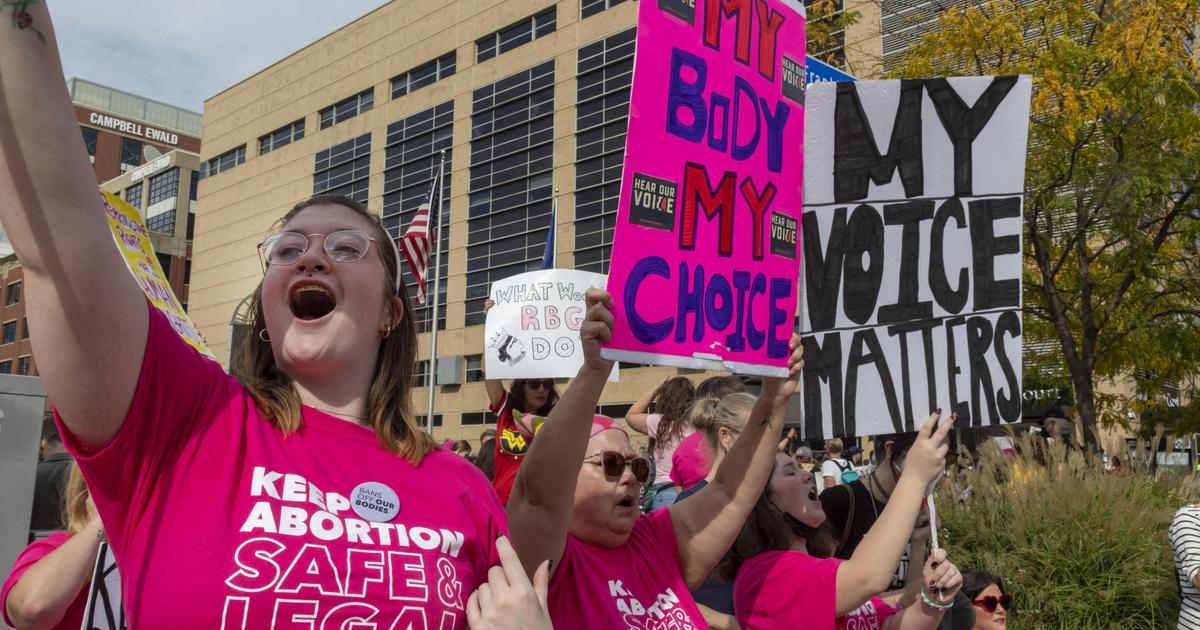Justyna Wydrzynska (Warsaw, 48 years old) projects a mixture of naturalness, strength and sincerity that activates a unique feeling of familiarity the moment you meet her.
They are perfect qualities to dedicate yourself to your own: inform about how to get an abortion in one of the most restrictive countries in the EU.
The audacity of women like her carries serious risks in Poland.
The judicial system, strongly influenced by the ultra-conservative Government of Law and Justice (PiS) and its minority partner, Solidarna Polska, has demonstrated this by taking an activist to the bench for the first time.
Wydrzynska faces up to three years in jail for sending abortion pills to a woman in a country where there is almost no legal basis for abortion.
She warns that her case, however extreme it may seem, could occur in any European country.
The Wydrzynska trial has international networks defending women's reproductive rights on alert, who see it as a serious warning.
The Polish activist is accused of helping to carry out an abortion and of possessing unauthorized drugs with the aim of introducing them into the market.
"When you look at the European laws on abortion in France, Belgium, the Netherlands, etc., in almost all countries, sharing pills can be considered a crime," he explained in a bright room at the Abortion Dream Team headquarters in Warsaw, days before. of the next session of the trial, scheduled for this Tuesday, March 14.
In places where the termination of pregnancy is legal and can be carried out easily and safely by doctors, access to pills outside the health system is unnecessary,
but Wydrzynska wants to draw attention to possible situations on the fringes.
"If they report you, you can find yourself with a sentence... a case like mine can occur in any European country," she warns.
In Poland, women who terminate their pregnancies do not commit any crime, but those who carry them out or help do defy the law.
Giving information, in theory, is not considered direct help, but the final interpretation depends on justice.
Wydrzynska is dedicated to informing, accompanying, not providing pills.
“I only did it once and got caught,” she says.
"The situation was so difficult that I couldn't do anything else."
It all happened at the end of February 2020, when the coronavirus was spreading and the debate about closing borders began.
"A woman contacted Abortion Without Borders [Aborto sin Fronteras] and she said that she had tried to go to Germany to have an abortion, but that her husband was blackmailing her."
If she took her youngest son with her on the trip, she would report her for kidnapping.
She "was very afraid to go and she said that this man controlled each and every one of her messages and
emails
."
The situation reminded Wydrzynska of a personal experience, and she knew that this profile, in addition to being a controller, is abusive.
She had pills for her personal use.
"I decided to send them to you."
Her husband filed a complaint and the police seized the pills.
“I knew immediately that she would end up in court,” she recalls.
Wydrzynska has become a symbol of the fight for abortion, and at the same time, of the right-wing crusade against the right to decide.
“We see how the conservative forces are getting stronger and we see this trend in all countries.
Also, more and more, that laws are not changed by parliaments, but by the courts", he says in reference to the ruling of the Polish Constitutional Court that in 2020 prohibited abortion due to fetal malformation and that of the US Supreme Court that revoked the ruling last year de
Roe against Wade
and sent the women back into hiding.
Poland is, after Malta, the most repressive country in the EU.
Abortion is only allowed in case of rape or incest or if there is a risk to the life of the mother, although there are women who have died because they did not receive an abortion on time.
Wydrzynska warns of the danger of regression in Europe, with countries like Hungary, where the ultra-conservative government of Viktor Orbán has begun to force listening to the fetal heartbeat.
In Italy, with a right-wing coalition government with the extreme right, the party of the prime minister, Giorgia Meloni, already restricts abortion in the Marche region.
"In France there are also great internal political changes," says Wydrzynska, in relation to the advance of the extreme right.
“It's hard to understand that people don't realize what it means to vote for certain parties.
Need for 9,166 medical abortions
"Any abortion law is an anti-abortion law, actually," defends Wydrzynska, who advocates abolishing the rules and limits.
His
The work, however, does not focus on politics but on action.
She miscarried in 2006 amid great concern and ignorance.
"In the end everything was very easy and I said to myself: We deserve to know that it is that easy and not be afraid."
Wydrzynska began to share information on the internet and created a forum with other women: "A place to feel safe and not judged."
That ended up giving rise to the Abortion Dream Team, which is part of Abortion Without Borders, an assistance service on how to get pills that are sent from abroad or how to have an abortion outside the country.
Last year, Wydrzynska's organization helped 9,166 people who needed a medical abortion.
“After 17 years supporting people who have abortions, I was somehow prepared to end up in court,” says Wydrzynska.
The police gave no sign until a year and three months later, when they showed up at her home with a search warrant.
Then everything accelerated with an exceptionally fast pace for the Polish judicial system and the trial started in April 2022. “That's when we knew that this was a political case.
From the beginning they knew that I am very visible, because together with my colleagues, I am the face of the movement”.
The signals that come out of the court that is handling the case suggest that the ruling, which could be known this month, will be condemnatory.
“We will appeal.
There are several steps before she goes to jail, ”says Wydrzynska optimistically, a woman with an easy laugh who wants to think that perhaps in another instance she will find herself“ with a fair sentence ”.
She feels supported by human rights defenders, international organizations, legislators, etc., and she is confident that, after the elections scheduled for this fall, a new political cycle will begin that will open a gap for hope.
"They want to silence us, make us invisible and scare us into stopping our activity."
Wydrzynska assures that they are not succeeding.
“I am not afraid of facing charges and even a jail sentence.
It's not that I don't worry, but it doesn't scare me,” she says honestly.
“I'm going to keep doing this work because I think it's very important,” she says, dressed in a black T-shirt that, in gold letters, proclaims: “I help with abortions.”
The risk of a chilling effect with a conviction
Anna Blaszczak-Banasiak, director of Amnesty International in Poland, is convinced that "the prosecutor will do everything possible to close the case with a high sentence" and believes that he will succeed.
The risk of the conviction, believes this human rights expert, is that it has a paralyzing effect among the thousands of people who provide information about abortion in Poland if the court interprets that informing is a way of helping.
“There are many brave women out there, but this is very real proof that it can happen to you,” Blaszczak-Banasiak believes.
Agata Adamczuk, an abortion doula from the Dziewuchy Dziewuchom Foundation, has been dedicated to informing and accompanying the process of terminating a pregnancy since she miscarried four years ago.
She is aware that Wydrzynska's case is "a warning" and describes it as "political repression against a human rights activist."
In a Warsaw cafe, wearing a discreet golden vulva-shaped pendant and great admiration for Wydrzynska, she Adamczuk concludes: "The trial doesn't scare us, it makes us braver."
Subscribe to continue reading
Read without limits
Keep reading
I'm already a subscriber

